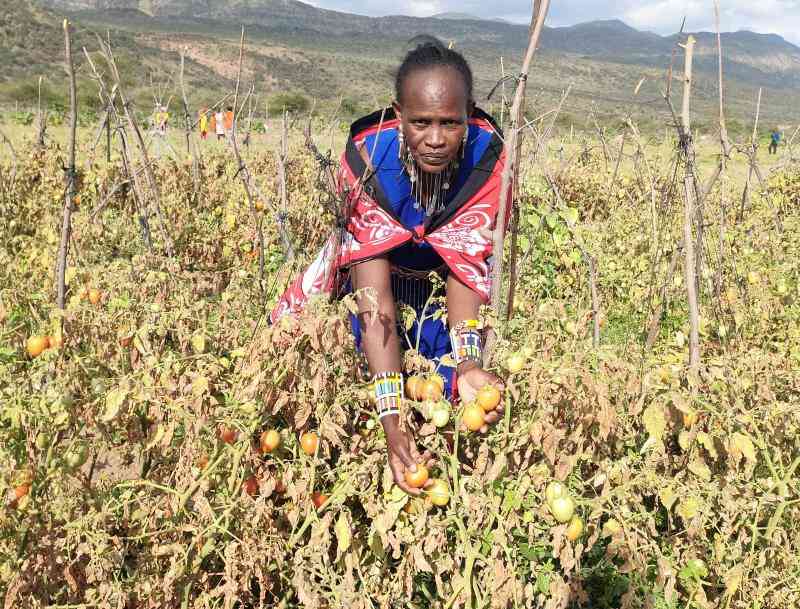
Ms Eunice Ateti, Secretary of Enduata Self Help Group harvests tomatoes in their farm located Eremit area of Kajiado West Sub County and Kajiado County [Nanjinia Wamuswa, Standard]
Under the scorching sun, Eunice Ateti and her group of women are harvesting tomatoes , piling up crates at the corner of their farm. It's their second harvest, and the count is at 40 crates with expectations soaring to hit at least 100 by season's end. This remarkable success stems from a journey that veered from pastoralism to crop farming, triggered by the harsh impacts of climate change.